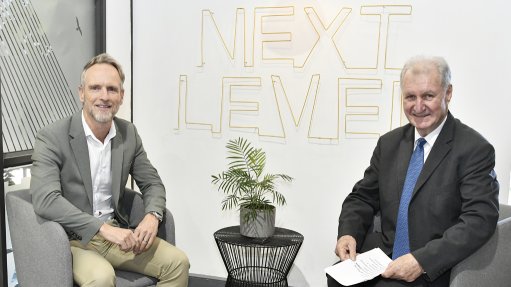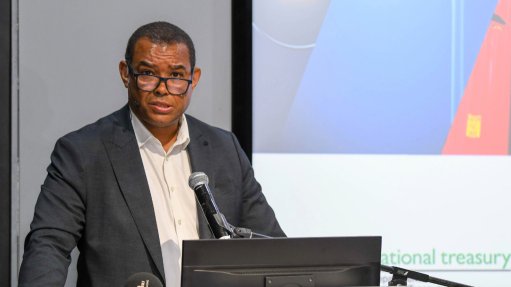Shift in household energy use alters South Africa’s power landscape: advent of solar and smart technologies offers light at the end of Eskom’s tunnel
This article has been supplied.
Co-authored by Mark Allewell, CEO at Sensor Networks and Ross Mains-Sheard, CEO and Co-Founder of Versofy
It has been reported that South African households tripled their spending on solar imports in 2023, with all the investment made by everyday South Africans at the grass-roots level starting to pay off – both at the household level and the national level. For households, investing in solar leads to a more reliable supply of power and more affordable electricity (as Eskom continues to hike its rates), whereas businesses enjoy fewer power-related interruptions. At the national level, the shift in South Africa’s household energy use has altered the power landscape – thanks to the rollout of solar, the demand placed on national power generation has dropped by 1,500MW, relieving some of the strain from an already-creaky national grid. If we can continue at this pace, the country’s power grid could be somewhat stabilised, thanks to the efforts of private consumers and businesses opting to make smart decisions regarding their energy use.
Going forward, solar power generation initiatives will continue to accelerate (as reported by Nersa, 124 new solar projects – equating to 605MW – were registered in Q4 2023). Such investment into solar by the private sector will indirectly assist the government in addressing South Africa’s power supply issues. This is fitting given the growing acknowledgement of the private sector’s role in solving and addressing the country's multitude of challenges (most notably via the desire to reform PPP regulations to encourage greater cooperation and involvement by private entities in traditional government matters). At present, these decentralised and individual initiatives can be considered a beta test for a potential sea change in how we approach problems in our country — and like any successful beta test, its potential is yet to be realised.
At this point, we have governments (local and national) seeking to work with private enterprises and – by all accounts – exceeding expectations; now, what if private enterprises were to work together on issues plaguing us all? Some may think this an idealistic and foolishly altruistic notion, as for-profit organisations have but one goal: profit. However, this is a lazy approach to doing business, as any potential problem also presents a potential avenue to do business and, in the process, leave society better off.
Consider access to hot water: geysers account for approximately 40-45% of a household’s electricity bill – given how relatively inelastic our desire and need for hot water is, the burden placed on lower-income households by a geyser is potentially enormous. A solar-integrated geyser can, however, ensure households enjoy the same hot water for a third of the price. By way of an estimated savings example, consider the following: if a household’s electricity bill is R2,000, a solar-integrated geyser could result in monthly cost savings of R660, which equates to around R45,000 over a five-year period. With smart-sensor technology attached to a home’s geyser, and when used optimally with solar integration, can lower up to 80% of household energy costs. Over the same five-year span, that comes close to R100,000 in savings.
At the same time, an individual household would be reducing their total carbon emissions by about 19 tonnes over five years. Beyond the immediate cost savings, having solar power and/or a solar-integrated geyser adds to the resale and rental value of a property. While the exact resale value of a property depends on several factors, enhancing a property’s sustainability credentials not only reduces running costs but also increases its market appeal over the long term.
So, solar panels and solar geysers are an obvious choice then, no? Well, one of the major challenges to the mass adoption of rooftop solar power (and, by extension, solar-powered geysers technology) is the initial capital costs required to buy a solar system outright; this excludes many South African households from benefiting from solar power and the associated cost savings.
Last year, South Africa’s finance minister introduced a tax framework for the 2023/2024 tax year to incentivise individuals to install solar panels at home to reduce dependence on Eskom. This was an acknowledgement of the crisis’s existence and some financial relief in the form of up to R15,000 tax assistance to help more households secure solar power.
With the solar energy incentives cut from the 2024 budget, consumers need to embrace solar as not just a necessity or a social conscience purchase, but also one that will help adjust the GDP deficit from load shedding, that according to the South African Reserve Bank, was reduced in 2023 by an approximate 1,8 percentage points. This, together with the potential of a national feed-in tariff framework, has the potential to be game changers locally.
But then, if the solar option is so attractive, what can be done for those without the capital or credit available for the investment despite these challenges? One solution is to give South African consumers access to innovative pricing options that can cater to a wider variety of individual household needs and budgets. Where previously two or more companies would have been required to deal with such a challenge, partnerships and collaborations by solar installers and geyser technology companies make the solar geyser option for many homes increasingly viable, affordable, and accessible.
If companies are willing and able to collaborate in this manner, government – with all the confidence rightfully placed in the private sector – should open doors and encourage citizens to walk on through towards greater solar adoption. Governments around the world have introduced policies and incentives to encourage the adoption of renewable energy; these include tax breaks, subsidies, and feed-in tariffs that make renewable energy projects more financially viable both on a national scale and at an individual household level. Government incentives can play a crucial role in driving solar energy adoption, provided they accurately reflect the current economic reality in the country and are inclusive of as many households as possible. Where government cannot incentivise the adoption of solar technologies (such as in the case of both smart geyser devices and rooftop solar systems), it should empower private businesses to step in with products, solutions and pricing structures that stimulate market demand.
Ultimately, whether driven by the public or private sector, South Africans and society at large don’t care – the desired outcome remains the same: an end to energy insecurity, a lower ecological footprint, respite from inflation in household energy costs, and some relief from ongoing increases in the standard of living. Hopefully, government stays the course and commits to initiatives that encourage cooperation and partnerships for the benefit of all South Africans, both bottom-up and top-down.
Article Enquiry
Email Article
Save Article
Feedback
To advertise email advertising@creamermedia.co.za or click here
Comments
Press Office
Announcements
What's On
Subscribe to improve your user experience...
Option 1 (equivalent of R125 a month):
Receive a weekly copy of Creamer Media's Engineering News & Mining Weekly magazine
(print copy for those in South Africa and e-magazine for those outside of South Africa)
Receive daily email newsletters
Access to full search results
Access archive of magazine back copies
Access to Projects in Progress
Access to ONE Research Report of your choice in PDF format
Option 2 (equivalent of R375 a month):
All benefits from Option 1
PLUS
Access to Creamer Media's Research Channel Africa for ALL Research Reports, in PDF format, on various industrial and mining sectors
including Electricity; Water; Energy Transition; Hydrogen; Roads, Rail and Ports; Coal; Gold; Platinum; Battery Metals; etc.
Already a subscriber?
Forgotten your password?
Receive weekly copy of Creamer Media's Engineering News & Mining Weekly magazine (print copy for those in South Africa and e-magazine for those outside of South Africa)
➕
Recieve daily email newsletters
➕
Access to full search results
➕
Access archive of magazine back copies
➕
Access to Projects in Progress
➕
Access to ONE Research Report of your choice in PDF format
RESEARCH CHANNEL AFRICA
R4500 (equivalent of R375 a month)
SUBSCRIBEAll benefits from Option 1
➕
Access to Creamer Media's Research Channel Africa for ALL Research Reports on various industrial and mining sectors, in PDF format, including on:
Electricity
➕
Water
➕
Energy Transition
➕
Hydrogen
➕
Roads, Rail and Ports
➕
Coal
➕
Gold
➕
Platinum
➕
Battery Metals
➕
etc.
Receive all benefits from Option 1 or Option 2 delivered to numerous people at your company
➕
Multiple User names and Passwords for simultaneous log-ins
➕
Intranet integration access to all in your organisation


















